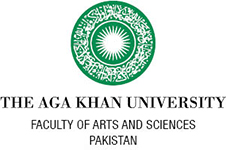Internships
Internships form a vital component of the FAS experience, providing to students the opportunity to hone skills for their professional and personal development whilst gaining a deeper appreciation and understanding of the complex environment and forces defining community life, issues, and opportunities. Internships ask students to connect, test, and extend theories and concepts raised during their courses to real-world settings. Notions of ethical leadership, civic engagement, and the determinants of sustainable development and social justice all receive guided introspection, action, and reflection.
Placements are local in Pakistan and international, where AKU campuses operate. In leveraging the University’s position within the Aga Khan Development Network, several students will fulfil roles within the community-based initiatives of the Network in Pakistan and globally.
To prepare for these intensive and rewarding experiences, students are supported by FAS-organised professional and career development workshops and a range of seminars and interactions designed to explore and develop skills critical to community engagement. As a result, students sharpen their capacity for applying and interviewing for jobs, their capability to perform effectively once in a dynamic and face- paced working environment, their dispositions to citizenship and civic life, and their commitment to service based on the ideals of equity and social justice.
The placements are nine-weeks in length and take place during students’ second summer following their fourth semester of study. Placements are arranged through a matching service FAS oversees to ensure students’ interests and skills align to host institutions’ commitments and projects. Host institutions derive from an exciting array of organisations in the private and civil society sectors. Meaningful learning and action during the placements are facilitated through supervisory support from FAS and the host, who work in partnership to ensure the safety and success of students. Assessments enable students to communicate their observations and learning, and through final presentations made by students to the FAS community of students, faculty, staff and host institutions, all benefit from rich and multidimensional discussion of the work that takes place at the intersection of student and community engagement experience.


